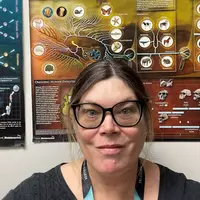Social Justice in Undergraduate STEMM Education 2040: An Optimist's Perspective
published Apr 8, 2022 2:21pmIt is the year 2040!
The intersecting crises of the 2020's (the pandemic, systemic racism, and climate change) finally led faculty groups and funders to a social justice agenda for Science, Technology, Engineering, Mathematics and Medicine (STEMM) education. Thousands of faculty read Ibram Kendi's How to be an Antiracist (2019) and began to realize that open educational resources (OER) and open pedagogy (OP) were needed to address the racial and ethnic disparities in health, impacts of climate change, and institutional practices. A revolution began!
Graduate and postdoctoral programs added Social Justice, Equity, Diversity and Inclusion to professional development programs. The National Science Foundation (NSF) reinstated the GK-12 program and created a new Graduate-Undergraduate curriculum development program. Institutions moved from general statements about social justice and serving all students, to investing in reward systems and data tools to assess progress toward a just system that serves society. Faculty committed to deep reflection to understand and overcome their own biases and worked to change the systemic racism built into academia in general and the research enterprise in particular. Institutions changed their hiring and tenure processes so that all students see themselves reflected in the faculty ranks. All types of institutions, community colleges, liberal arts institutions and research focused institutions have, over these years, established networks and partnerships and formal transfer agreements. Faculty tenure and promotion guidelines were revised to include public scholarship and reflection on open pedagogies and professional development in applying social justice principles. Discipline-based education faculty were hired (on tenure track) in nearly every department. Since that watershed year our faculties have become more diverse and our curricula have changed.
The movement to integrate research into STEMM courses gained momentum to include students as co-creators of curricular materials. Faculty worked together across departmental boundaries to assess content, curricular frameworks, and applications of each course and program to society. Science literacy, data literacy, and application to social issues took priority. Revised materials called for all people to be represented in texts and Open Educational Resources (OER) materials. and current research.
As a result, more students now feel not only welcomed as learners, but are enabled to be content creators and researchers from their first STEMM course. In their first STEMM courses, students now learn to critique and evaluate knowledge claims. Our STEMM courses are better coordinated to incorporate visualization, research design and models, and to examine the ethics of scientific practices and the social justice implications of historical and future science and application. The latest textbooks and OER materials focus on diverse and counter stereotypical scientists, featuring not only their work and their data, but their stories of resilience and their lives in science. Our faculties are becoming more diverse and representative and thus constantly bring new perspectives to our teaching and research missions.
Our classrooms are now more open spaces that support the evidence based active learning practices and enable collaborative teams to create new knowledge. Our institutions intersect closely with local communities, and our students investigate and solve problems with local community groups.
From the very first course, we teach students to think like scientists, to evaluate and weigh evidence, to communicate clearly and to place scientific data in context. Instead of focusing on science as a body of knowledge, we allow students to inquire, investigate and communicate. Inquiry-based approaches, such as problem-based learning (PBL) and investigative case-based learning (ICBL), have documented success in enhancing conceptual understanding and increasing skills in problem solving, critical thinking, communication and self-assessment. By using complex, authentic problems to trigger investigation in the lab and library, our students develop critical thinking, problem solving, and collaborative skills.
These methods allow students to experience science integrated with other disciplines such as mathematics (graphs, statistics), history (social, economic and political context of the issue), and language arts (conveying research results), and to enhance their capacity for creative and responsible real-world problem solving. Inquiry science courses integrate ethical dimensions of science. Debates on cloning, DNA testing, limits of prediction, and potential perils, as well as benefits of science deepen understanding for all students. Combining such approaches with practice in communicating science to different audiences creates engaged scholars and a scientifically literate public.
We have made great strides in moving from incremental interventions to systemic, structural and lasting change. Our institutions now provide a more diverse STEMM workforce and our alumni generate new ideas that are improving health, quality of life and discovery for all peoples and parts of the globe. Our non-majors leave class, still loving and exploring science, and they learn to critique and evaluate knowledge claims about health, vaccines and evolution.
We have not yet solved all the inequities in K-12 or undergraduate education or in health disparities in local communities, but we have come a long way. The experiments in education are now bolder, the future looks more just, more equitable and more creative.
Citation:
Kendi, I.X. (2019). How to be an antiracist. One World.
Comment? Start the discussion about Social Justice in Undergraduate STEMM Education 2040: An Optimist's Perspective




